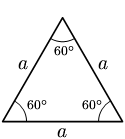 The notion of virtue is abstract and is related to the idea of acting for the common good. Here, it can be understood basically in two ways: at the individual level or at the level of the transcendent condition of the human being. Virtue is generally understood as a phenomenon that is acquired from socialization and community life since it is respect for the other that will allow our own survival. The virtue of acting according to the values imposed or developed by a particular society will always be a benefit for all.
The notion of virtue is abstract and is related to the idea of acting for the common good. Here, it can be understood basically in two ways: at the individual level or at the level of the transcendent condition of the human being. Virtue is generally understood as a phenomenon that is acquired from socialization and community life since it is respect for the other that will allow our own survival. The virtue of acting according to the values imposed or developed by a particular society will always be a benefit for all.
In this sense, we can say that virtue as an essential and transcendental condition of the human being is that which naturally leads us to seek the common good and to develop ethical and moral values that contribute to life in community. Virtue is then something that is obtained by sharing our existence with others, although it is this very thing that can corrupt it.
Virtue at the individual level is always related to more practical and concrete elements that have to do with the way in which a person develops on a daily basis. Here, virtues such as goodness, solidarity, ethics, respect for the other, commitment, justice and truth are some of the examples that make an individual can be defined as a subject with great virtues. However, in this regard, the virtues of an individual may not only be social or moral but perhaps have to do with their aesthetic, political, ideological, creative, physical, etc. virtues.
According to Western tradition, the four most important virtues of the human being are temperance, prudence, justice and strength, all of which are necessary for the development of solid, committed, fair and beneficial social experiences for all. Also, it should be noted that they were included in the religious doctrines of various religions
Temperance
Temperance is that virtue that suggests moderation in terms of the attraction of pleasures and then promotes balance in this sense. When someone is the owner of temperance, they will dominate their will over instinct and will always keep desires at bay and consequently with honesty. For example, temperance is linked to concepts such as moderation and sobriety.
Prudence
Prudence is the quintessential virtue of fair, correct, and cautious action, and when it comes to communication, prudence becomes evident when clear, cautious, literal language is used according to the situation and context. Acting with prudence also means doing it while always respecting the freedom and feelings of others and even if they are not in line with our ideas.
Strength
The virtue of fortitude implies overcoming fear in all its aspects and for this, firmness will prevail in terms of the decisions that are made and also the determination regarding the search for the good that is intended to be achieved. Beyond the obstacles and pitfalls that stand in the way and the sacrifices that must be made to achieve the end, strength will add value to our soul and will make us move forward, with courage and vigor to overcome them and finally get out. victorious.
Justice
The virtue of justice or rather whoever acts guided by this virtue will be especially concerned with giving his neighbor what is due and that corresponds to him by right and will always do so with balance with respect to the rest of the people and the common good.
Now, it is worth saying that the authors ascribed to Christianity, based on the aforementioned virtues, developed the theological virtues, which are those habits that God himself infuses both in the will and in the intelligence to men in order to order their actions. These are: faith, hope and charity and are considered as a complement to the cardinal virtues.
Faith
Faith implies assenting with the will in a firm way to a truth exposed in divine revelation, that is, the believer of this or that religion adheres to a truth by the authority of the one who bears witness to it. Undoubtedly, faith is the base, the pillar on which religions are based. The faithful trust blindly to the norms supplied or set forth by the authorities of the religion they follow.
Hope
Meanwhile, hope is the virtue through which man will manifest confidence and certainty regarding the attainment of eternal life and the disposition of the means that will help to obtain it.
Charity
Charity implies within Christianity the love of God above all and that love also extends to the neighbor precisely because of that love of God. Therefore, charity will require doing good and acting in conformity and with respect in front of the brothers. In addition, charity will generate reciprocity, that is, it is given and returned in the same way and with the same intensity. And it never goes hand in hand with interest and yes with generosity.









